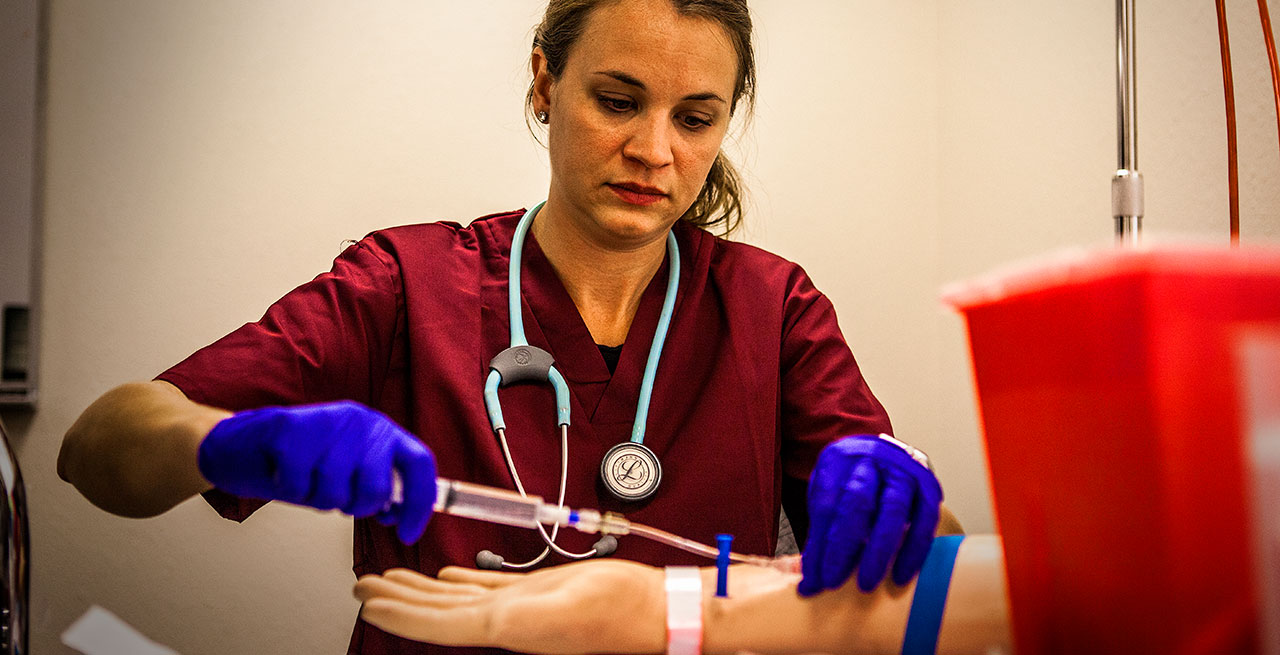
Paramedic-to-ADN Pathway
Are you already working as a licensed paramedic but looking to advance your career in health? The Paramedic-to-ADN Pathway is designed to help licensed paramedics take the next step—an associate degree in nursing (ADN).
Bridge to Nursing
Mid-State makes it easy for paramedics to begin their ADN coursework with a “bridge” of requirements:
- Paramedic-to-ADN Theory 1 and Theory 2
- Paramedic-to-ADN Nursing Skills – Choose from 8-week and 16-week options
- Paramedic-to-ADN Clinical - Nursing Introduction to Clinical Care Management – 8 weeks
Once these bridge requirements are met, you may begin third-semester Nursing courses. This will be followed by fourth semester courses. All requirements can be met at Mid-State. Upon completion you will be eligible to take the NCLEX-RN.
Explore the full policy and curriculum details below, and contact a Nursing academic advisor with any questions.
Paramedic-to-ADN Admission Requirements
- Be a US citizen or permanent resident
- Possess a paramedic degree from an accredited college
- Hold a valid Wisconsin Paramedic license
- Work as a licensed paramedic for at least one year
Prior to entering 10543135 (clinical), students are required to complete a program on-boarding (orientation) session.
Paramedic-to-ADN Curriculum
The Paramedic to ADN (Associate Degree in Nursing) pathway is state-aligned and recognized by all 16 colleges within the Wisconsin Technical College System (WTCS). Following successful completion of the pathway, a student is eligible to begin the third semester of the ADN program.
(Not all colleges offer every course within the pathway. Students may need to take theory and skills courses at one college and complete their clinical requirements in their district. Check with your local college for specific course availability.)
Step 1: Credits Already Earned by Licensed Paramedics(Subject to confirmation by credit evaluation process) |
|
|
General Education Courses* |
28 credits |
|
Advanced Standing for Paramedic License |
9 credits |
|
Step 2: Paramedic Bridge Courses |
|
|
10543132 Paramedic to ADN Theory 1 (8 weeks) |
3 credits |
|
Step 3: Core Nursing Clinical Courses |
|
|
3rd Semester (9 credits) |
|
|
4th Semester (10 credits) |
|
|
TOTAL Credits to Obtain the Degree |
66* credits |
*The GPS for Student Success course is required for all Mid-State program students. It is recommended to be completed before obtaining 12 credits. Some students are exempt from this requirement. Please see your program advisor for more information.


